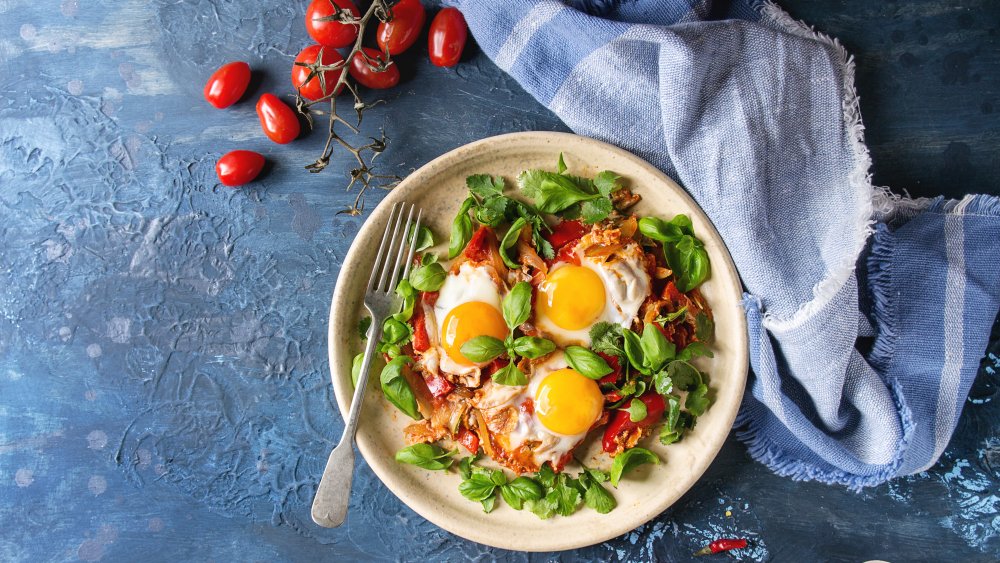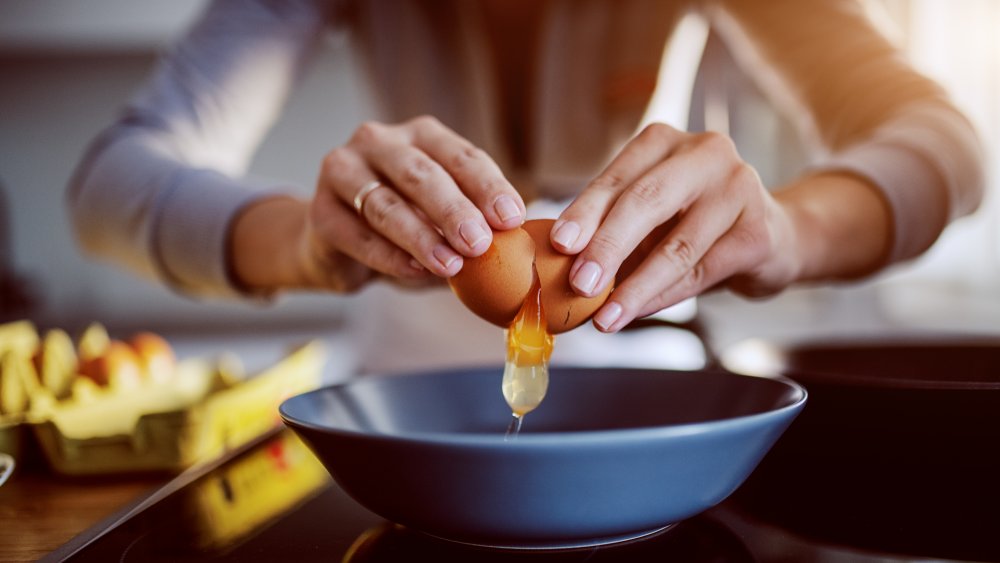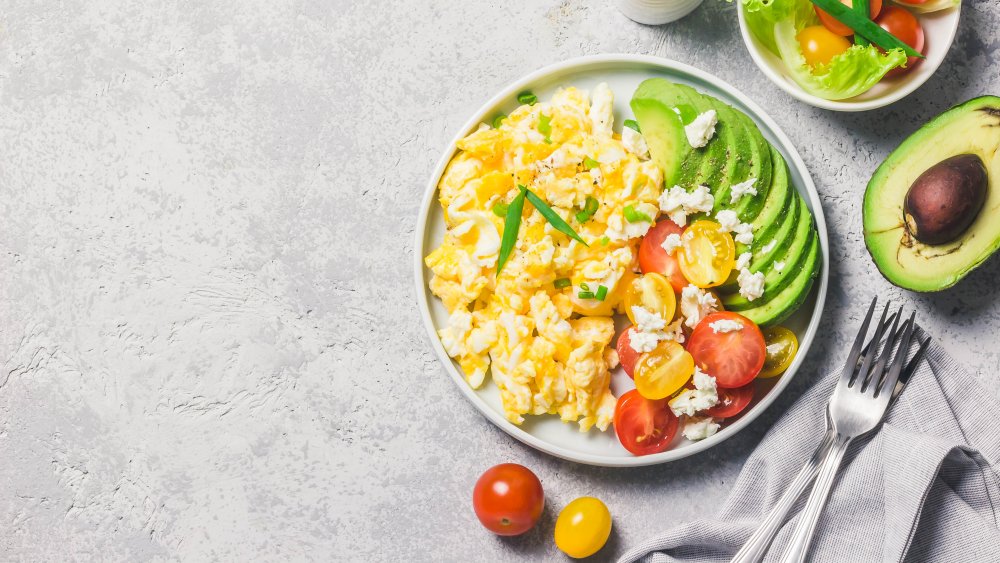You Should Never Cook Eggs Over High Heat. Here's Why.
There are so many potential downfalls when it comes to prepping your eggs. Make the wrong move, and your eggs can emerge flavorless, drippy, overcooked, rubbery — somehow, all at once. But eggs should be a friend, not an enemy: Treat them right, and they'll serve as the perfect, cheap source of protein that manages to be tasty and photogenic all at once. Need a garnish for your spicy ramen? Add a poached egg. Need an impressive recipe for brunch? Cook a frittata with red peppers and gouda. Searching for a new pasta dish? Whip up some carbonara (via The Kitchn). Once you can master the surprisingly complex world of cooking eggs, you've got endless possibilities.
Sometimes, when we're striving to self-improve, we've got to acknowledge the mistakes we're making. Cooking eggs over high heat — particularly when you're going scrambled, sunny side up, poached, or full-on omelet — is a common, albeit fixable, egg blunder. Instead, opt for medium heat for an important reason.
Medium heat makes for evenly-cooked eggs
Let's go back to the basics. You're craving some sunny side up eggs. They'll look so beautiful perched on top of your leftover fried rice. You pour a thin layer of oil onto your warm skillet, and you crack your first egg into the pan. Now what?
If you glance down at your egg, soaking up a bit of that oil, you might notice that the egg white cooks more quickly than the yolk. After all, the egg white has a larger surface area, and it's resting right on top of that hot skillet (via The Spruce Eats). If you crank your stove up to its highest setting, you'll blast that heat right into the egg whites. After a few minutes, this will dry out the egg white altogether, creating a tough and oddly-crunchy consistency. Your yolk may still be runny, but who cares? What's a runny yolk when it's set on top of a dry, cracker-like egg white?
Cooking that same egg over medium heat will change everything. Your egg whites will set gently, while the yolk stays blissfully soft. If you prefer yolks that are a little firmer, you should cover the skillet with a lid, to create some steam (via HuffPost). This will push the heat to the yolks, rather than drying out the final product.
Poached and scrambled
This mindset of using gentle, medium heat is applicable to poached and scrambled eggs, too. Dropping your egg into a pot of vigorously boiling water does no favors for anyone. If you poach your eggs at an excessively high temperature, you won't get that lovely, velvety yolk spillage. Instead, when poaching eggs, you should opt for a "gentle simmer" (via Bon Appétit).
The same rule of thumb goes for scrambling eggs: Cook them "low and slow," according to The New York Times. Frantically scrambling your eggs at a high heat will leave you with those dry, piecey eggs you used to find in your dorm room's cafeteria (didn't those come from a carton, anyway?). Opting for the low heat will take a few minutes longer, but you'll end up with creamy scrambled eggs that will make you feel as though maybe, just maybe, you could be a French chef.


